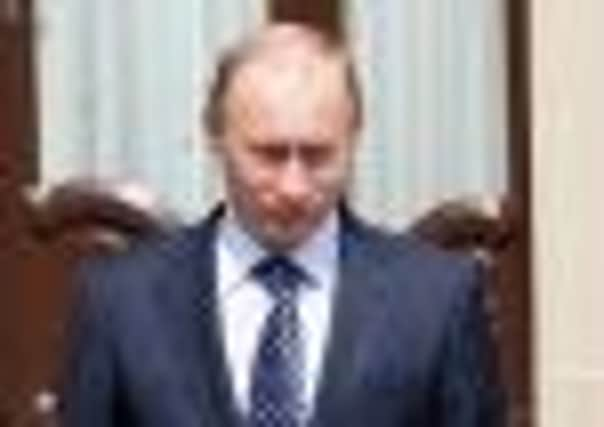Russian elections: Vladimir Putin faces critics to claim ballot protests were rigged


In a four-and-a-half hour question-and-answer show broadcast live across Russia, and intended to rebuild support as he prepares to reclaim the presidency, the long-serving prime minister sought to portray himself as a national leader who could unite his people.
But many Russians on the social network Twitter suggested his efforts had failed, saying the 59-year-old former spy was out of touch three months before the presidential election he hopes to win.
Advertisement
Hide AdAdvertisement
Hide AdBreaking his silence on rallies by tens of thousands of people on Saturday, Mr Putin mixed words of praise with suggestions that some of the demonstrators complaining of electoral fraud and demanding a new election were paid to show up.
He said: “I saw people on the TV screens … mostly young people, active and with positions that they expressed clearly. This makes me happy, and if that is the result of the Putin regime, that’s good – there’s nothing bad about it.”
“They will at least make some money,” he added. In the past, he has suggested the United States had stirred protests and foreign states had funded them.
The 59-year-old said that, at first, he thought the white ribbons worn by the protesters as a sign of dissent were part of an anti-AIDS campaign, and he had mistaken them for condoms.
A doctored photo was soon doing the rounds on the internet, with Mr Putin wearing a condom on his chest instead of a medal.
Dressed in a suit and tie at a large desk as he took questions by phone and from a studio audience, and sometimes via videolinks, he also looked less at ease than in previous years.
Broaching the possibility of reforms, he suggested legislation might be passed to allow small opposition parties to be registered.
One of his main acts after taking power in 1999 was to remove elected governors in Russia’s regions and appoint his own representatives, restoring strong Kremlin control. This, he said, headed off a danger of the world’s biggest country breaking up.
Advertisement
Hide AdAdvertisement
Hide AdHe hinted at reintroducing direct elections, but only after the president had approved candidates proposed by parties – an idea scarcely likely to win support from his critics.
“We can move in this direction,” he said.
Mr Putin gave no indication he would respond to the protesters’ main demands such as sacking the central election commission chief and re-running the election which returned his United Russia party with a reduced majority.
He appears to be intent instead on riding out the protests and hoping they fade, although another day of marches is planned by the opposition on Christmas eve.
Many Russians saw an announcement by Mr Putin and president Dmitry Medvedev on 24 September that they planned to swap jobs as a sign that everything had been settled between them with no respect for democracy. Mr Putin confirmed yesterday he wanted Mr Medvedev to become premier after the March election.
He also strove to appear democratic and unconcerned about the protests by saying they were “absolutely normal as long as everyone acts within the framework of the law”.
“From my point of view, the result of the election undoubtedly reflects public opinion in the country,” he said, making clear there would be no rerun. But at another point, he turned to the call-in host and said: “I’ve had enough of these questions about the elections.”